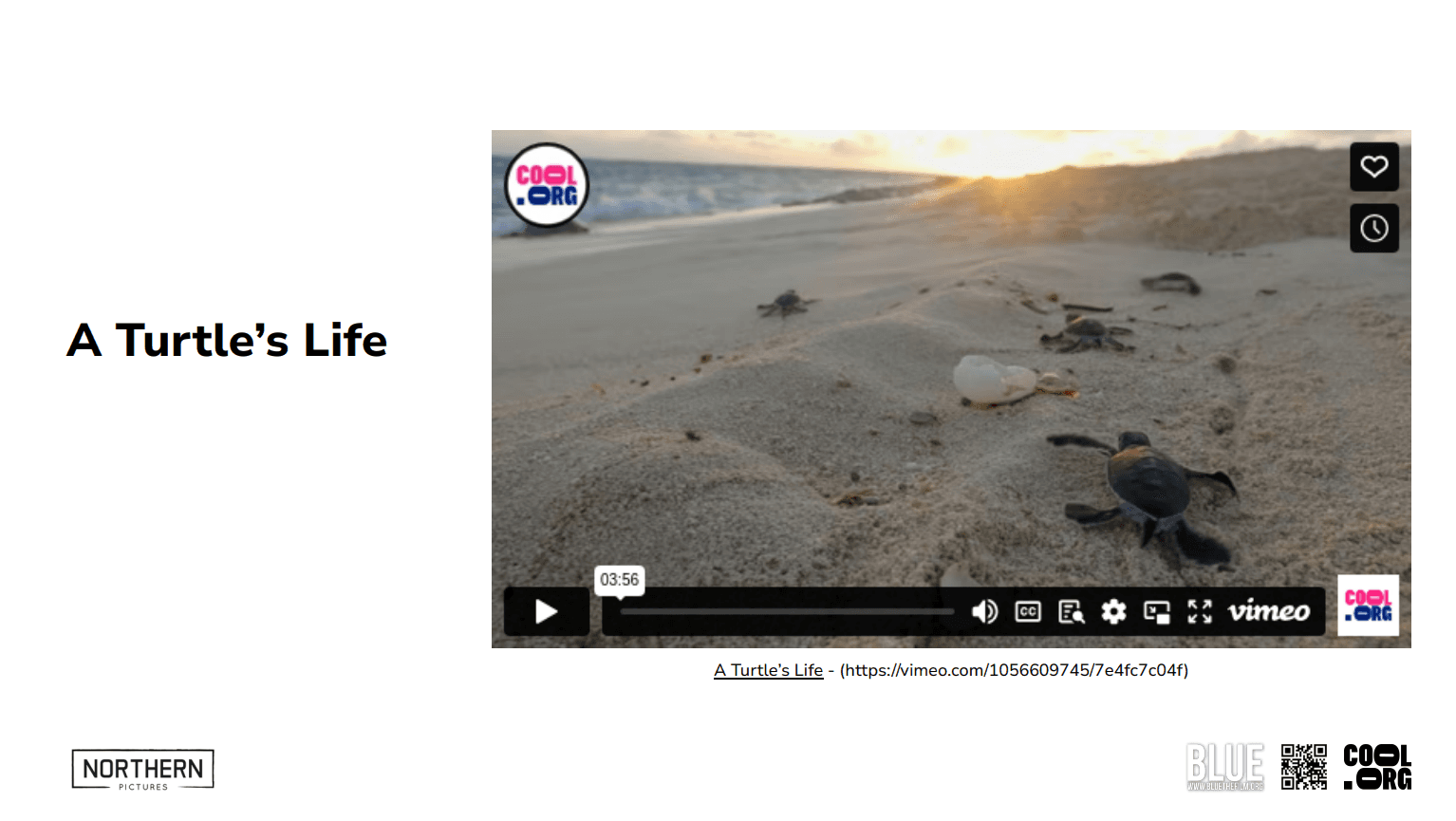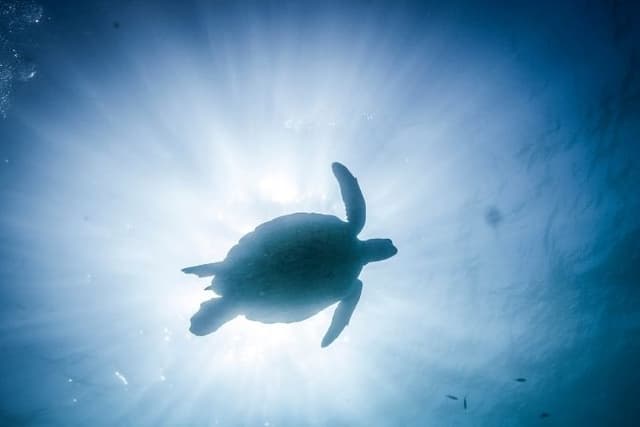
Ocean Guardians Being Turtle-Friendly
Lesson7 of 7 in this unit
PrimaryFoundationYear 1 - 2EnglishScienceHumanities and Social SciencesEnvironmentalBiodiversityConservationOceansWater
Summary
Lesson Guides and Printables
Lesson Plan
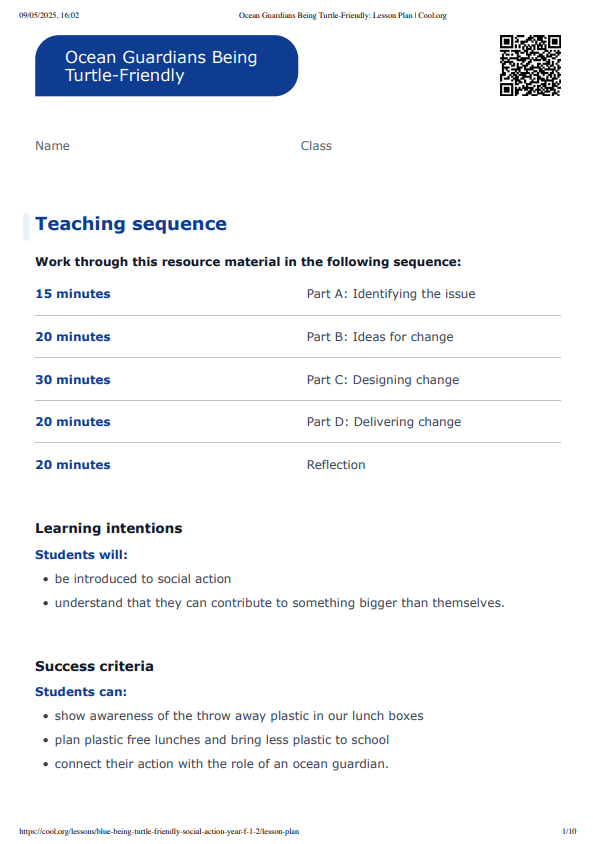
Student Worksheet
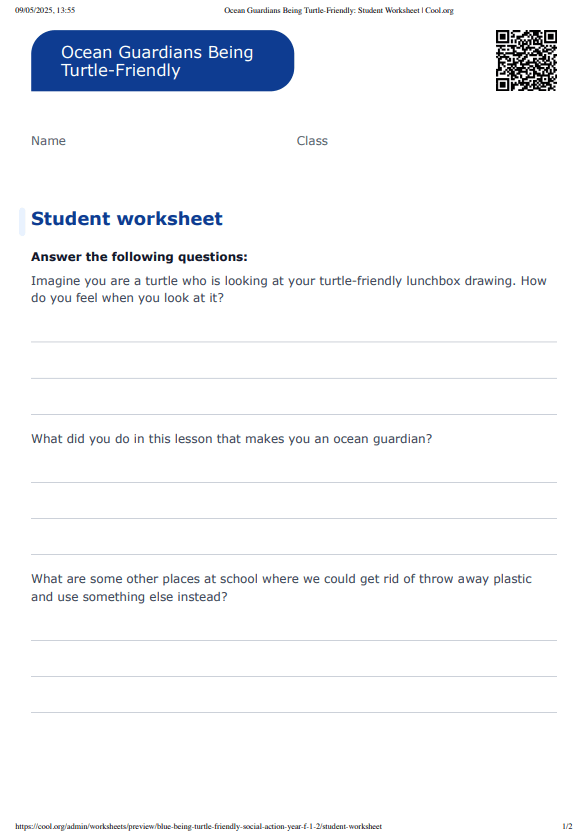
Teacher Content Info
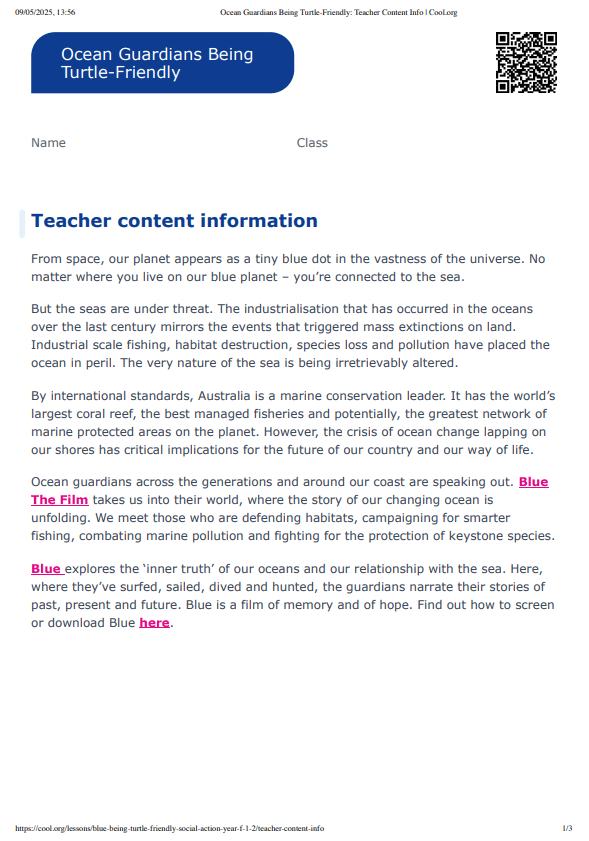
A Turtle's Life Visual Explainer
